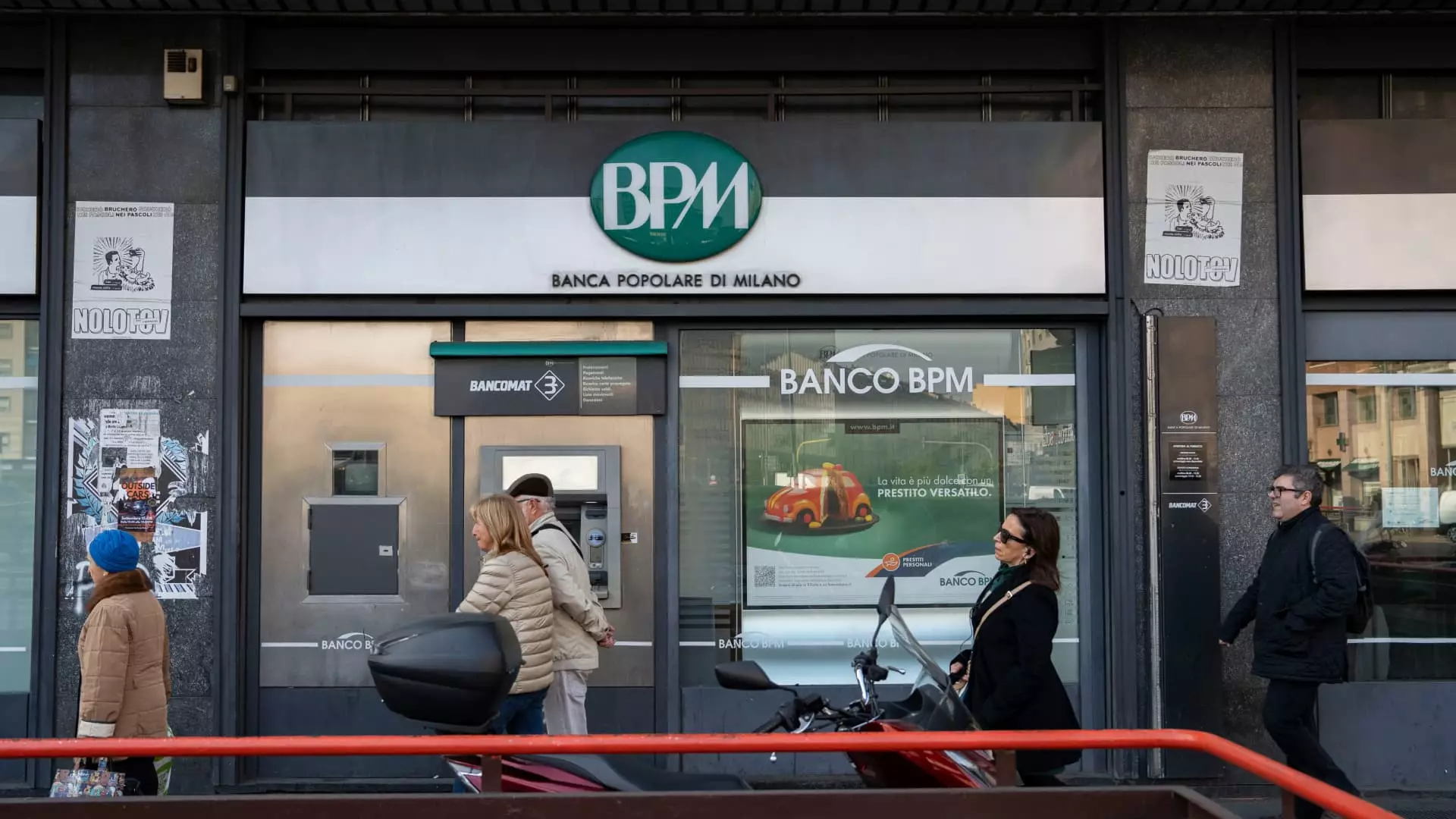The Italian banking sector, known for its intricate dynamics and historical rivalries, has recently found itself at a critical juncture following UniCredit’s unsolicited takeover offer for Banco BPM. This surprising bid, coupled with reactions from Banco BPM’s leadership, unveils significant implications not only for the institutions involved but also for the broader financial landscape in Italy and beyond.
On a typical Tuesday in the realm of finance, dramatic headlines emerged as Banco BPM voiced its dissent against UniCredit’s €10 billion ($10.52 billion) takeover proposal. Described by the Banco BPM board as a move delivered under “unusual” terms, the offer has ignited a flurry of reactions. The board emphasized that this unsolicited bid does not accurately reflect their bank’s robust profitability and growth potential, flagging their commitment to maintain operational independence despite the pressures of such rapid consolidations.
The core of Banco BPM’s resistance revolves around their assertion that UniCredit’s offer underestimates the bank’s current market position and future capabilities. This is noteworthy in a sector where potential mergers often promise improved efficiency and market dominance. Instead, Banco BPM’s management has rebuffed the notion of an expedited merger, suggesting that a hurried process could undermine their autonomy and legal standing, a critical factor in upholding investor confidence.
UniCredit’s ambition to expand has recently been illustrated not only through its overtures toward Banco BPM but also through its aspirations involving Germany’s Commerzbank. It is essential to recognize the complexities of such cross-border ambitions and the reactions they provoke from governmental entities. The German government’s vocal opposition to UniCredit’s intentions highlights the sensitive nature of financial consolidations in Europe, where political undertakings often intertwine with corporate strategies.
Moreover, UniCredit’s CEO, Andrea Orcel, framed Banco BPM as a “historical target,” rekindling discussions about past overtures made as recently as 2022. This historical context serves not only as a reflection of ongoing rivalries but also prompts one to consider whether such mergers genuinely serve the interests of Europe’s economy. The call for larger banking entities to enhance financial competitiveness resonates, yet it becomes imperative to delineate between strategic tractions and opportunistic acquisitions.
Following the announcement, market reactions revealed a mixed sentiment. On one hand, UniCredit’s stock remained stable, while Banco BPM experienced a slight decline. Such movements signal potential investor skepticism regarding the impact of a merger on Banco BPM’s value proposition. In this light, the deal appears to hold more questions than answers, particularly concerning what stakeholders stand to gain or lose in a possibly transformative chapter for the banks involved.
Orcel’s reassurances—emphasizing the need for stronger European banks—may not sufficiently mitigate concerns voiced by Banco BPM’s board, which worries that the merger could dilute its strategic plans for geographic expansion. This well-articulated perspective emphasizes the necessity of scrutinizing these discussions through the lens of stakeholder interests rather than only corporate prerogatives for growth.
As the dust settles from the initial exchange of offers and rebuttals, the fate of these two banking giants remains uncertain. Banco BPM’s recent acquisition of a stake in Monte dei Paschi, along with government maneuvers to ease market tensions, signals that the Italian banking ecosystem is being shaped not only by corporate ambitions but also by regulatory and governmental influences.
The conversation around mergers and acquisitions in banking needs a more comprehensive assessment, with an eye towards the long-term implications for stability and growth within the industry. As observers and participants in this domain alike await the European Central Bank’s decisions regarding UniCredit’s holdings, the central narrative is clear: collaborations in finance need to strike a balance between ambition and prudence to safeguard the interests of a complex mosaic comprising banks, regulators, and consumers alike.
Navigating these waters will require a nuanced understanding of both the financial metrics at play and the political landscapes shaping them, as the Italian banking sector evolves in response to both internal and external pressures.

